In today’s digital era, having an effective real estate agent website is no longer just a luxury; it’s an absolute necessity. With homebuyers increasingly relying on the internet to search for properties and connect with real estate professionals, your online presence can make or break your business. But with countless options available, how do you choose the best real estate agent website that will set you apart from the competition?
Mục lục
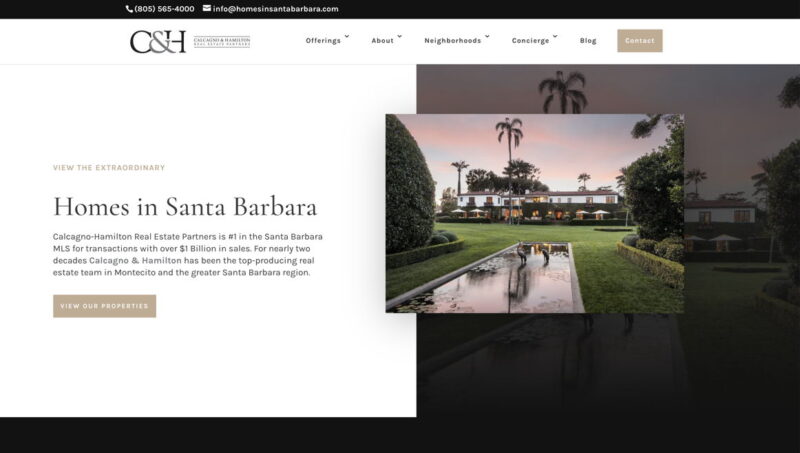
Welcome to this comprehensive guide where I’ll walk you through the key factors to consider, top website examples, optimization techniques, tips for choosing the right provider, and more. By the end, you’ll be equipped with the knowledge and insights to make an informed decision and supercharge your online presence.
Why is having an effective real estate agent website essential?
Imagine your website as your virtual storefront, the first impression potential clients have of your business. Just like a well-maintained physical office, a visually appealing and user-friendly website creates trust and credibility. It showcases your listings, expertise, and the unique value you bring to the table. A powerful website not only attracts and engages visitors but also generates leads, boosts conversions, and ultimately helps you grow your business.
Overview of this Article
In this article, we’ll explore the key factors that make a real estate agent website stand out from the competition. We’ll delve into responsive design and user experience, IDX integration and property search functionality, lead generation and capture strategies, visual appeal and high-quality media, SEO-friendly features, and integration with social media platforms. We’ll also analyze real-world examples of top-performing real estate agent websites and discover how to optimize your own website for search engines.
So, if you’re ready to take your real estate business to the next level, let’s dive in and uncover the secrets of the best real estate agent websites. With these insights in hand, you’ll be well on your way to building a captivating online presence that leaves a lasting impact on potential clients.
Stay tuned for Section II: Key Factors to Consider in Choosing the Best Real Estate Agent Websites.
Key Factors to Consider in Choosing the Best Real Estate Agent Websites
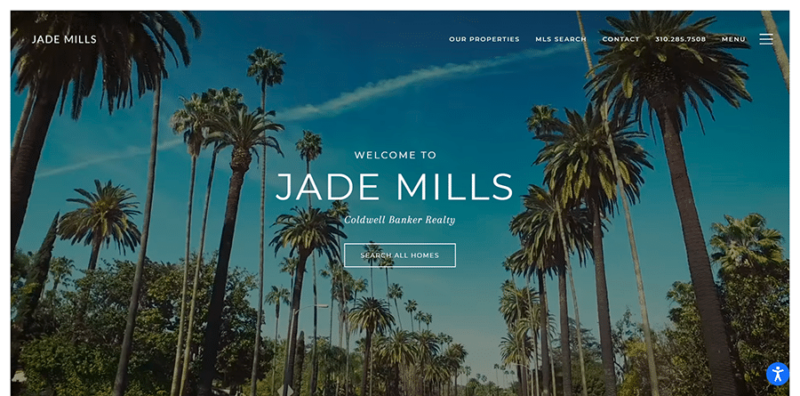
In the ever-evolving digital landscape, having a website that not only captures attention but also delivers a seamless user experience is paramount. When it comes to real estate agent websites, there are several key factors to consider to ensure you choose the best platform that aligns with your business goals. Let’s explore these factors in detail:
A. Responsive Design and User Experience
1. Importance of mobile-friendly websites
In today’s mobile-centric world, it’s crucial that your real estate agent website is optimized for mobile devices. With more and more people browsing and searching for properties on their smartphones and tablets, a responsive design ensures that your website adapts seamlessly to different screen sizes, providing an optimal viewing experience for potential clients.
2. Enhancing user experience through intuitive navigation
User experience (UX) plays a pivotal role in keeping visitors engaged and converting them into leads. Intuitive navigation ensures that users can easily find what they’re looking for, whether it’s property listings, contact information, or other relevant resources. Clear and well-organized menus, search bars, and strategically placed call-to-action buttons are essential elements for a streamlined user journey.
B. IDX Integration and Property Search
1. Explanation of IDX integration and its benefits
IDX integration, or Internet Data Exchange, allows you to display real-time property listings on your website, sourced directly from your local Multiple Listing Service (MLS). This integration provides visitors with up-to-date and accurate information, showcasing your expertise and giving them a reason to stay on your website.
2. Importance of advanced property search functionality
A robust property search feature empowers potential clients to narrow down their options based on specific criteria such as location, price range, property type, and more. By offering advanced search filters, you enhance the user experience and help visitors find their dream properties quickly and effortlessly.
C. Lead Generation and Capture
1. Strategies for effective lead generation
Your real estate agent website should serve as a lead generation machine. Implementing lead generation strategies such as offering valuable resources like e-books or market reports in exchange for contact information can help you build a strong pipeline of potential clients.
2. Utilizing contact forms and lead capture tools
Contact forms strategically placed throughout your website enable visitors to reach out to you easily. Additionally, integrating lead capture tools, such as pop-up forms or live chat functionalities, can further enhance your ability to capture leads and engage with them in real-time.
D. Visual Appeal and High-Quality Media
1. Importance of visually appealing design
First impressions matter, and a visually appealing website design sets the stage for a positive user experience. Utilize modern and clean layouts, eye-catching color schemes, and consistent branding to create a visual identity that reflects your professionalism and builds trust with potential clients.
2. Utilizing high-quality images and videos
Compelling visuals, including high-resolution images and engaging videos, can help showcase your listed properties in their best light. Investing in professional photography and videography can make a significant impact by capturing the attention of potential buyers and encouraging them to explore further.
E. SEO-Friendly Features
1. Importance of search engine optimization (SEO)
Having a visually stunning website is not enough if it doesn’t rank well on search engine result pages. Implementing SEO strategies ensures that your website appears higher in search results, driving organic traffic and increasing your chances of being discovered by potential clients.
2. Incorporating relevant keywords and meta tags
To optimize your real estate agent website for search engines, conduct thorough keyword research to identify the phrases and terms potential clients are using when searching for properties. Incorporate these keywords naturally throughout your website’s content, including page titles, headings, URL structures, and meta descriptions.
F. Integration with Social Media Platforms
1. Benefits of social media integration
In today’s interconnected world, social media platforms provide an excellent opportunity to expand your reach and engage with potential clients. Integrating your website with social media channels allows visitors to easily share your listings, follow your updates, and connect with you on various platforms.
2. Strategies for effective social media presence
To make the most of social media integration, develop a consistent social media strategy. Regularly share engaging content, such as property highlights, market insights, and helpful tips, to build your brand and foster meaningful connections with your audience.
Stay tuned for Section III: Top Real Estate Agent Website Examples.
Top Real Estate Agent Website Examples
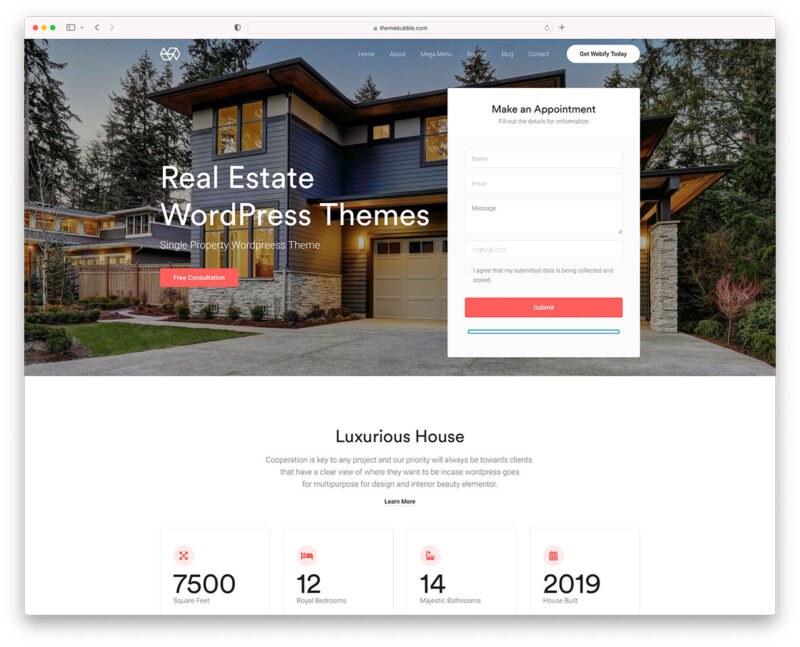
When it comes to creating the best real estate agent website, it’s crucial to learn from the best in the industry. In this section, we’ll explore three captivating case studies of real estate agent websites that have raised the bar and achieved remarkable success. By examining their key features, strengths, and weaknesses, we can gain valuable insights into what makes a website truly exceptional.
A. Case Study 1: Website A
Website A has mastered the art of captivating design and seamless user experience. Its key features include:
- Stunning Visuals: Website A embraces high-quality images and videos to showcase properties in their best light. The visuals are strategically placed, creating an immersive experience for visitors.
- User-Friendly Navigation: With intuitive menus and clear calls-to-action, Website A ensures that visitors can easily navigate through the site and find the information they need.
- Advanced Property Search: Website A offers a robust property search functionality, allowing users to refine their search based on specific criteria such as location, price range, and property type.
Strengths of Website A include its visually appealing design, seamless navigation, and comprehensive property search. However, it falls short in terms of lead generation strategies, lacking prominent contact forms and lead capture tools.
B. Case Study 2: Website B
Website B sets itself apart through its exceptional lead generation and personalized user experience. Its key features include:
- Lead Generation Tools: Website B strategically places contact forms, newsletter subscriptions, and live chat options throughout the site, maximizing opportunities to capture leads.
- Personalization: Website B tailors the user experience by offering personalized property recommendations based on users’ search history and preferences, enhancing engagement.
- Interactive Virtual Tours: To provide a unique and immersive experience, Website B incorporates interactive virtual tours, allowing potential buyers to explore properties from the comfort of their homes.
Website B excels in lead generation and personalization, offering a highly engaging experience for visitors. However, its design and visuals could be improved to match the high standard set by its competitors.
C. Case Study 3: Website C
Website C shines in its search engine optimization and seamless integration with social media platforms. Its key features include:
- SEO Optimization: Website C implements effective on-page optimization techniques, incorporating relevant keywords, meta tags, and optimized page titles to rank higher in search engine results.
- Social Media Integration: Website C seamlessly integrates with various social media platforms, allowing users to easily share listings, connect with agents, and engage with the brand.
- User-Generated Content: Website C leverages user-generated content, such as testimonials and reviews, to establish trust and credibility among potential clients.
Website C demonstrates a strong focus on SEO and social media integration, boosting its online visibility and engagement. However, it could enhance its visual appeal and navigation to provide a more captivating user experience.
By studying these real estate agent website examples, we can identify the strengths and weaknesses of each. Analyzing their strategies can inspire us to incorporate the best features into our own websites, ensuring we deliver an exceptional online experience for our clients.
Stay tuned for Section IV: How to Optimize Your Real Estate Agent Website for Search Engines.
How to Optimize Your Real Estate Agent Website for Search Engines
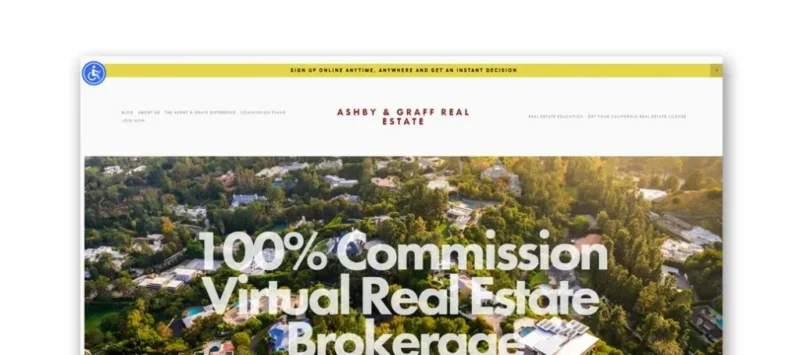
To ensure that your real estate agent website gets noticed by search engines and ranks higher in search results, it’s crucial to optimize it for search engine optimization (SEO). By implementing the following strategies, you can improve your website’s visibility and attract more organic traffic.
A. Conducting Keyword Research
- Importance of finding relevant keywords: Keyword research lays the foundation for your SEO strategy. By identifying the keywords and phrases that potential clients use when searching for real estate services, you can tailor your website content to match their needs. This helps search engines understand the relevance of your website to specific search queries.
- Tools and techniques for keyword research: There are numerous tools available to assist you in finding the most relevant keywords for your real estate website. Google Keyword Planner, SEMrush, and Moz Keyword Explorer are popular options that provide valuable insights into search volume, competition, and related keywords. By analyzing these metrics, you can select the most effective keywords to target.
B. On-Page Optimization Techniques
- Optimizing page titles, headings, and meta descriptions: Crafting compelling and keyword-rich page titles, headings (h1, h2, h3), and meta descriptions is essential for SEO. These elements provide search engines and users with a concise summary of your web pages’ content. By incorporating relevant keywords, you improve the chances of your website appearing in search results.
- Utilizing internal and external linking strategies: Internal links connect different pages within your website, enhancing navigation and improving the overall user experience. Additionally, external links to reputable and authoritative websites can boost your website’s credibility and visibility in search results. By strategically incorporating both internal and external links, you can improve your website’s SEO performance.
C. Creating High-Quality and Engaging Content
- Importance of unique and informative content: High-quality content is a cornerstone of successful SEO. By providing valuable and unique information, you establish yourself as an expert in the real estate industry and encourage users to spend more time on your website. This not only improves your website’s SEO but also increases user engagement and the likelihood of conversions.
- Incorporating relevant keywords naturally: While it’s essential to include relevant keywords in your content, it’s equally important to use them naturally and avoid keyword stuffing. Search engines value content that reads organically and provides value to users. By seamlessly integrating keywords into your content, you can strike a balance between SEO optimization and user experience.
D. Utilizing Local SEO Strategies
- Importance of targeting local audience: If your real estate business primarily operates within a specific region or locality, implementing local SEO strategies can significantly improve your visibility to potential clients in that area. Local SEO focuses on optimizing your website for location-specific keywords and targeting users searching for real estate services in your target market.
- Implementing local keywords and location-specific content: Incorporating local keywords throughout your website’s content, including page titles, headings, and meta descriptions, signals to search engines that your website is relevant to local searches. Additionally, creating location-specific content such as neighborhood guides, market reports, and local event updates can further enhance your website’s visibility in local search results.
Stay tuned for Section V: Tips for Choosing the Best Real Estate Website Provider. By optimizing your real estate agent website for search engines, you’ll be on your way to attracting more organic traffic and generating leads.
Section V: Tips for Choosing the Best Real Estate Website Provider

When it comes to selecting the best real estate website provider, you want to ensure that you make an informed decision that aligns with your business goals. With a myriad of options available, it’s essential to conduct thorough research and consider various factors before making a choice. Here are some valuable tips to guide you through the selection process:
A. Researching Different Website Providers
To start your journey, it’s crucial to research and familiarize yourself with the different website providers in the real estate industry. Some popular providers include Wix, WordPress, Squarespace, and IDX Broker. By exploring their offerings, you’ll gain insight into their features, pricing models, and customer reviews, helping you to make an informed decision. Look for providers that specialize in real estate and understand the unique needs of the industry.
B. Evaluating Customization Options
One of the key aspects to consider when choosing a real estate website provider is the level of customization they offer. An effective website is one that reflects your brand identity and stands out from the competition. Look for providers that offer a range of templates and customization capabilities, allowing you to tailor your website to your specific needs. Flexibility in design and functionality will enable you to create a unique online presence that resonates with your target audience.
C. Considering Technical Support and Maintenance
Technical support and maintenance are vital considerations when selecting a website provider. Ensure that the provider offers reliable and accessible customer support channels, such as live chat or email, so that you can seek assistance whenever needed. Additionally, inquire about the maintenance and updates they provide. Websites require regular updates and optimization to ensure optimal performance and security. Choose a provider that offers ongoing support and takes care of technical maintenance on your behalf.
By following these tips, you’ll be well-equipped to choose the best real estate website provider that meets your business needs. Remember to take into account their popularity, features, pricing, and customer reviews, evaluate customization options, and consider the level of technical support and maintenance they offer. With the right provider by your side, you can confidently build a stunning website that showcases your properties and attracts potential clients.
Stay tuned for Section VI: Conclusion.
Conclusion
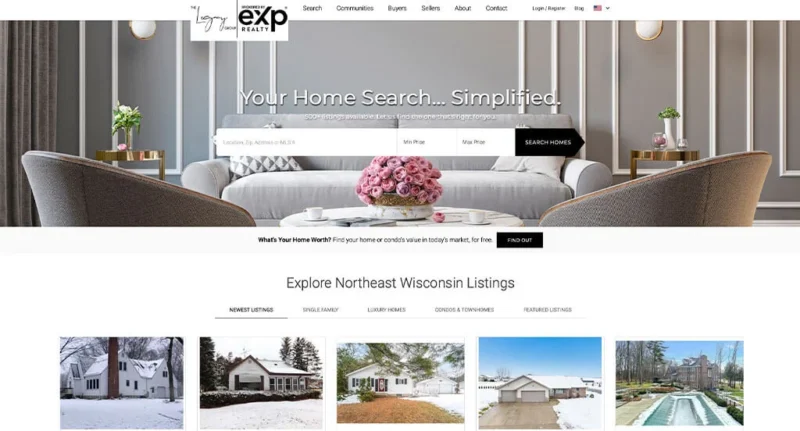
In conclusion, the power of an effective real estate agent website cannot be underestimated in today’s digital landscape. It serves as your virtual storefront, attracting and engaging potential clients, generating leads, and ultimately helping you grow your business. By incorporating the key factors discussed in this article, you can create a website that stands out from the competition and maximizes your online presence.
Remember the importance of responsive design and user experience, ensuring that your website is mobile-friendly and easy to navigate. Integrate IDX and advanced property search functionalities to provide seamless property browsing for your visitors. Implement lead generation and capture strategies to convert website visitors into valuable leads.
Visual appeal and high-quality media play a significant role in capturing the attention of potential clients. Utilize stunning images and videos to showcase your listings and create an immersive experience for visitors. Don’t forget to optimize your website for search engines by incorporating relevant keywords and meta tags, as well as implementing local SEO strategies to target your specific market.
Integration with social media platforms allows you to expand your reach and engage with a wider audience. Leverage the power of social media to share your listings, interact with potential clients, and establish yourself as a trusted authority in the real estate industry.
When choosing the best real estate agent website provider, conduct thorough research to compare features, pricing, and customer reviews. Evaluate customization options to ensure your website aligns with your brand and unique offerings. Consider technical support and maintenance provided by the website provider to ensure a smooth and hassle-free experience.
To unlock the true potential of your real estate business, it’s time to invest in the best real estate agent website. With a captivating online presence, you’ll be able to showcase your expertise, attract more leads, and achieve new levels of success. Take action today and choose a website provider that aligns with your goals and aspirations.